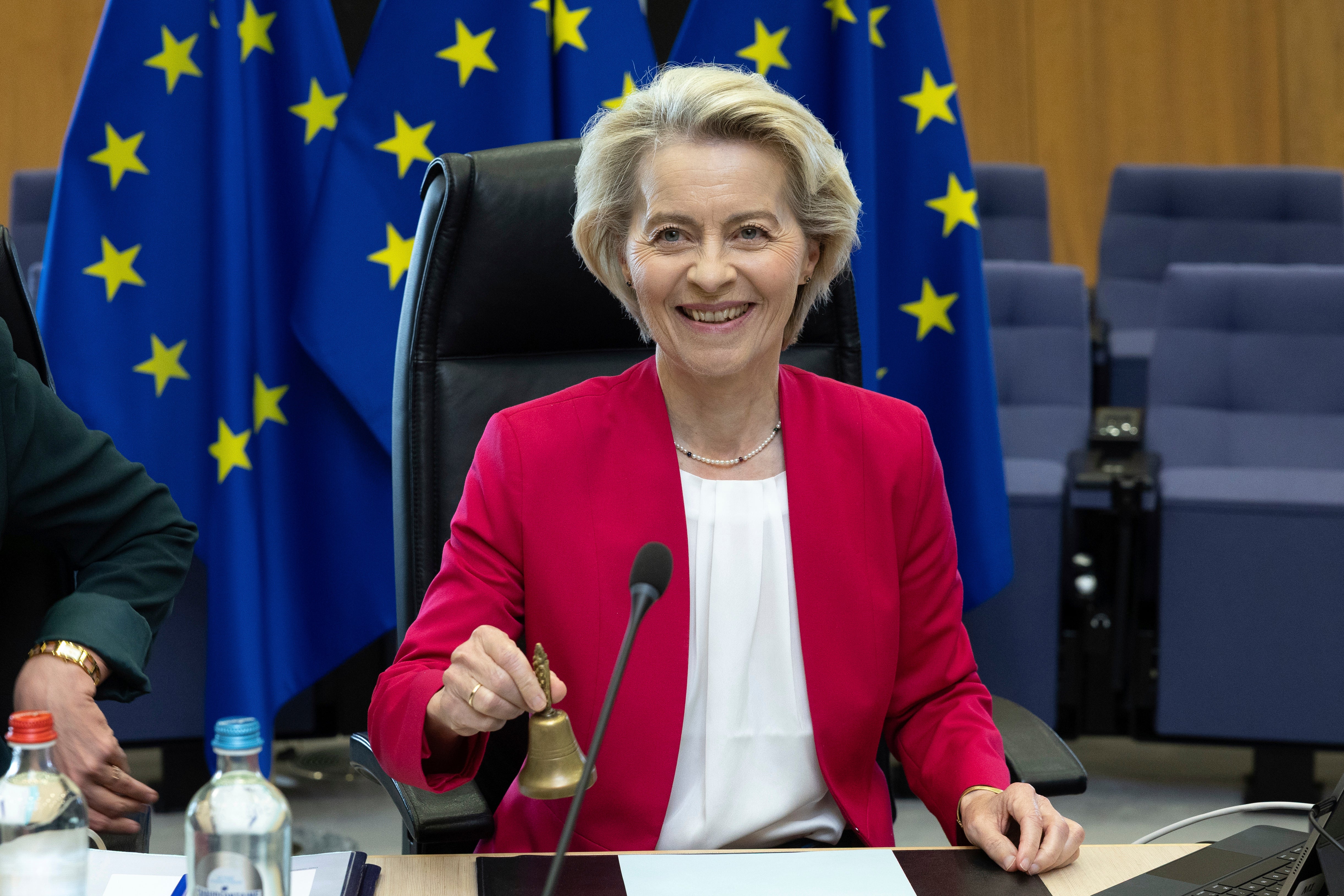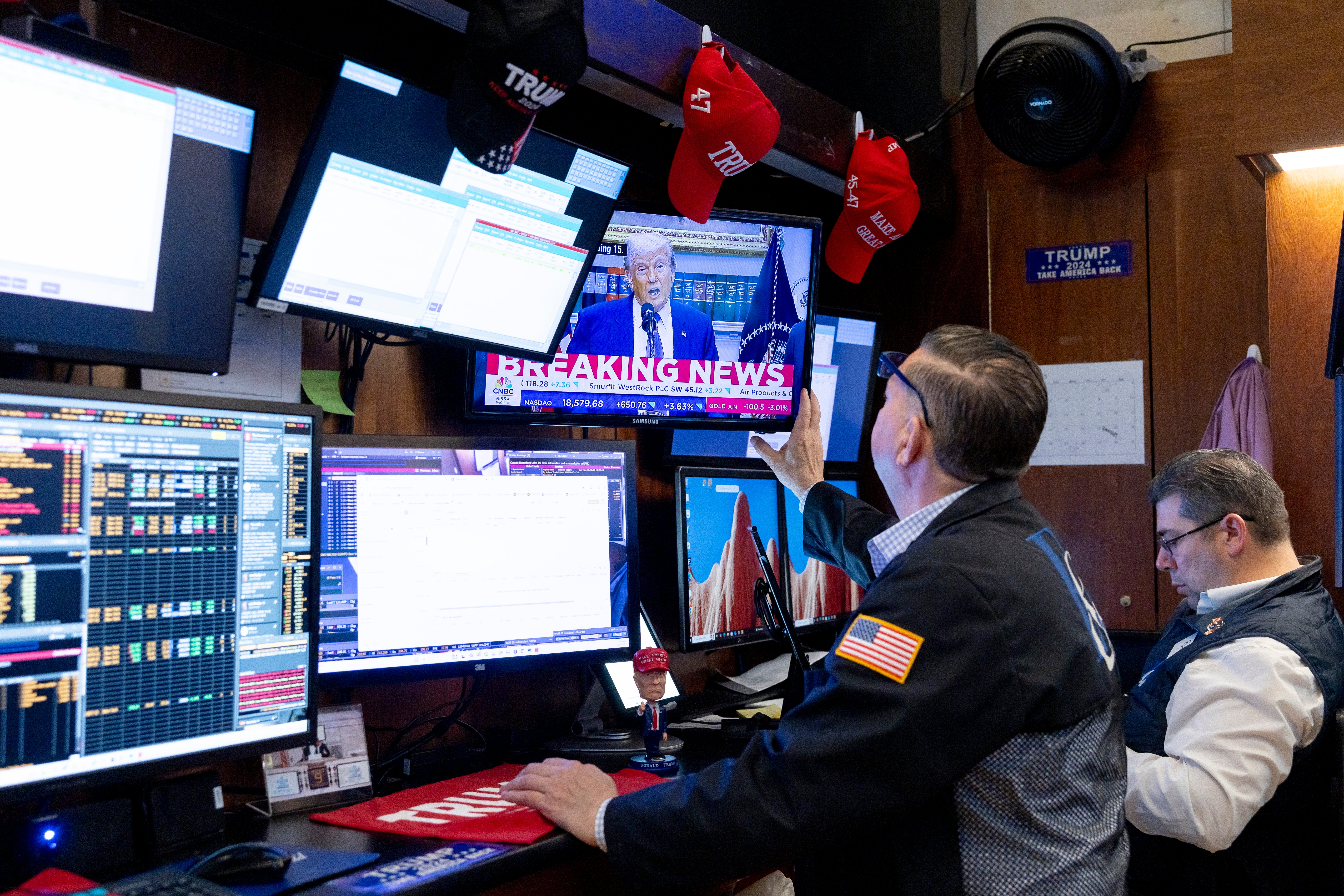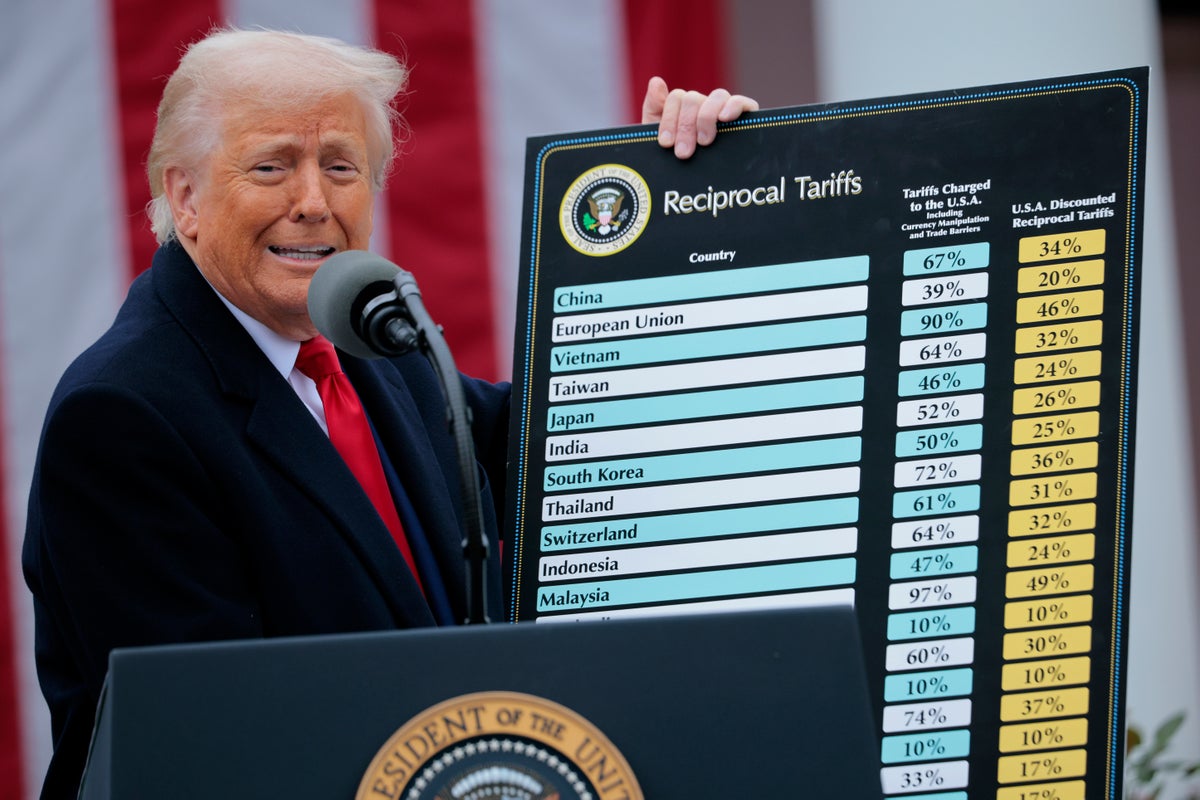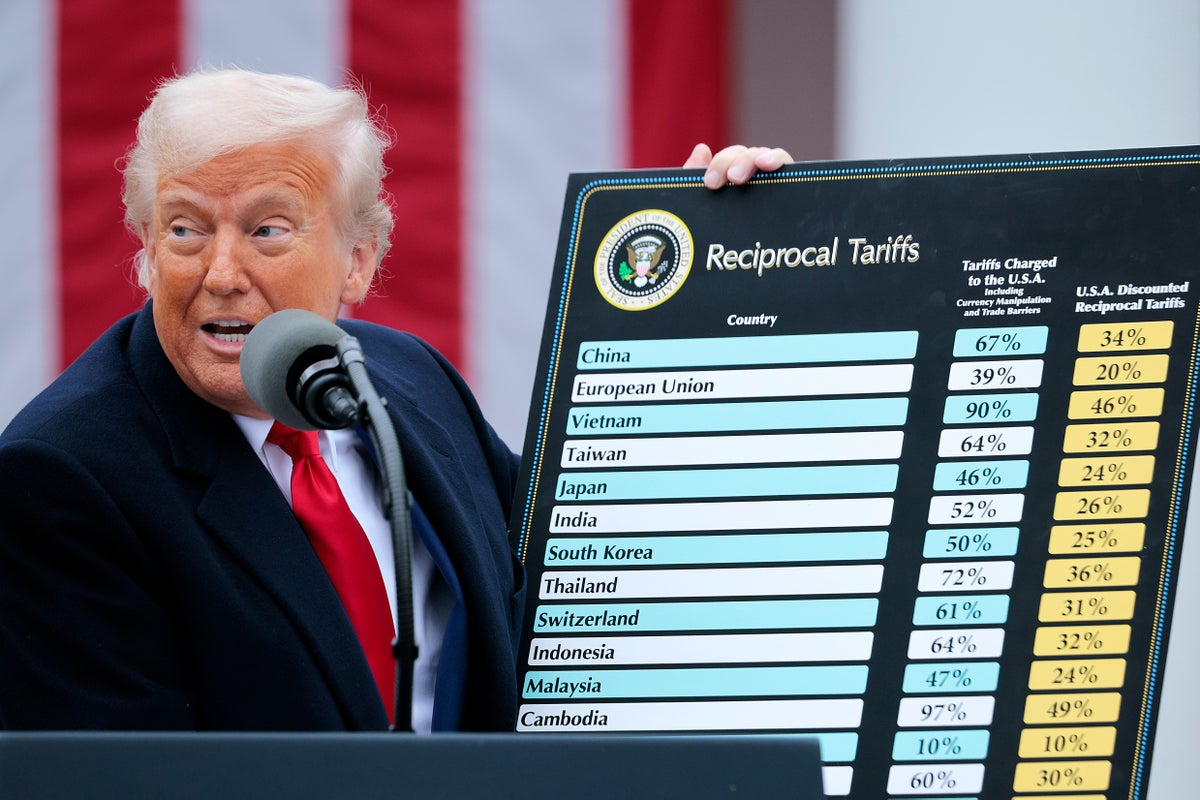A court has upended Donald Trump’s already ever-changing tariff policies overnight, blocking the sweeping global levies in a significant blow to his administration.
But experts warned that the decision by the United States Court of International Trade will not necessarily provide any relief to countries hoping for lower tariffs or even trading uncertainty with the US.
Dr Leslie Vinjamuri, director of the US and Americas programme at Chatham House, said the ruling – from a court that “most of the world will have never heard of” – was a “major setback” for the president.
But the decision, which has already been appealed by the Trump administration, is not any real cause for relief for American trading partners.
On 2 April, the US president announced high tariffs on nearly every trading partner, setting a sweeping baseline tariff of 10 per cent for most, while announcing even higher duties for dozens of other nations, including India and China.

Since then, tariffs have been paused for some countries; tariffs on Chinese goods rose to 145 per cent before being cut to 30 per cent; and as recently as last week, Mr Trump threatened to lift duties on European Union goods to 50 per cent.
So, what does the court decision do to this landscape?
Dr Vinjamuri said: “For Europeans and the rest of the world trying to decide how to respond to President Trump’s tariffs, the answer today appears to be: let America sort itself out, but, still, continue to prepare for the worst and diversify your portfolio.”
The Court of International Trade ruled that Mr Trump’s decision to impose global so-called “reciprocal” tariffs was unlawful, finding the justification the White House used was not valid. The administration had argued it was a national security emergency.
Dr Vinjamuri said that while tariffs would remain a part of Mr Trump’s toolkit, it would be a difficult legal case for the president to fight.

“Yesterday’s ruling is part of the broader story and question of what, who, how, and when will Trump be restrained in his efforts to overreach his executive authority,” she said.
“The ultimate question of US executive authority, though, will be decided by US courts, US corporate interests, US universities, and the US public. It is a deeply American problem with enormous global implications.”
Countries have been working for weeks now to negotiate trade and tariff agreements with the US, and were reticent to express a view on the court development.
Germany said it could not comment, as did the European Commission.
“We ask for your understanding that we cannot comment on the legal proceedings in the US, as they are still ongoing,” a spokesperson for Germany’s economy ministry said.
“We continue to hope that a mutually beneficial solution can be reached in the negotiations between the EU Commission and the US government.”

China’s foreign ministry spokesperson Mao Ning also had little to say when asked to react on Thursday.
“China has made its position very clear: tariff and trade wars have no winners. Protectionism benefits no one and is ultimately unpopular,” she said.
Wendy Cutler, a former US trade official who is now vice-president at the Asia Society Policy Institute in Washington DC, said the court’s decision “throws the president’s trade policy into turmoil”.
“Partners negotiating hard during the 90-day tariff pause period may be tempted to hold off making further concessions to the US until there is more legal clarity,” she said.
Russ Mould, investment director at AJ Bell, said that although the White House was already planning an appeal, there was a chance that the House of Representatives and the Senate would approve the tariff plan regardless.
“So there is no guarantee that anything will change as the 9 July deadline for the reciprocal tariffs approaches (pending any trade deals),” he said.
While global stock markets seemed encouraged by the court ruling, Mr Mould said that was “perhaps as a reflection of the view that rule of law rather than presidential executive order is returning to the political stage in the USA”.
For company management teams, business will remain tricky, he said.
“It will remain very difficult for them to plan ahead, even after the court’s decision, given the prospect of the White House’s appeal,” Mr Mould said.
“In this respect, the near-term danger remains that companies hold off from spending or hiring with the result that US economic data remains soft, or at least murky and difficult to interpret.”
Additional reporting from Reuters, AP


